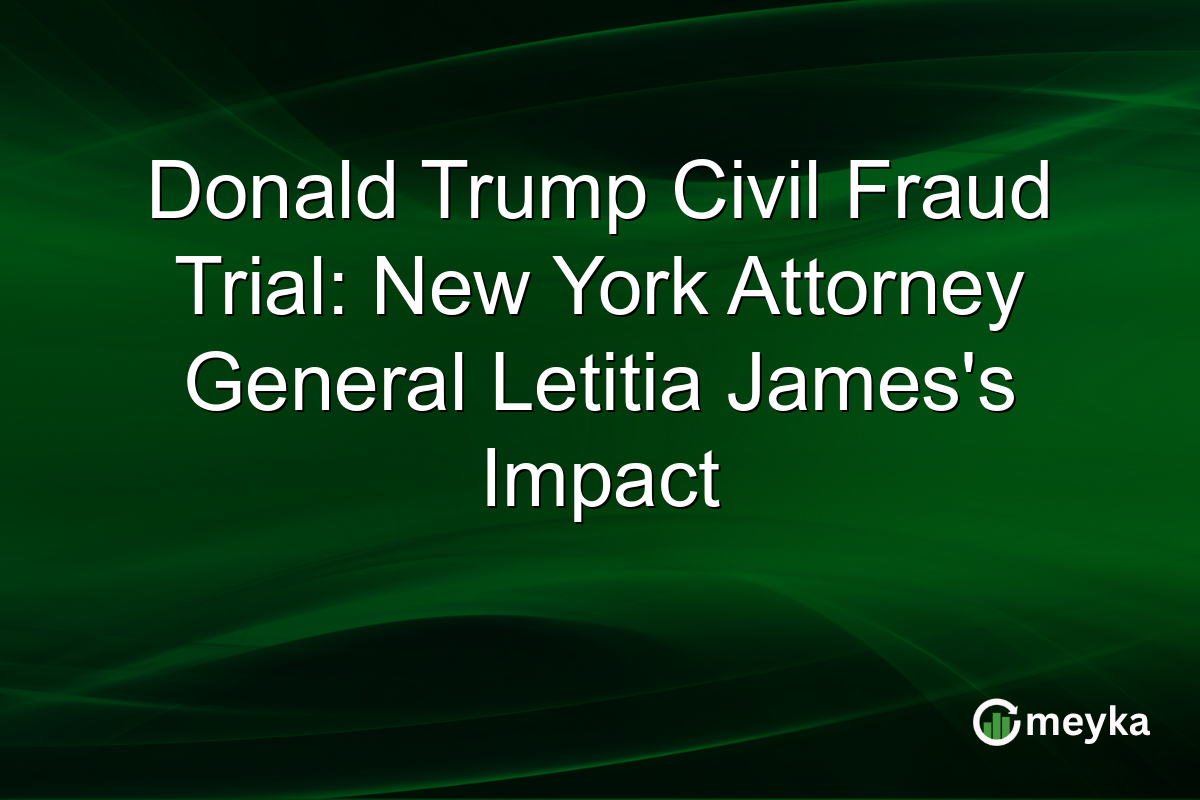Donald Trump Civil Fraud Trial: New York Attorney General Letitia James’s Impact
The Letitia James Trump civil case has taken center stage as the New York Attorney General pushes forward in a high-profile civil fraud trial against Donald Trump. Her pursuit of financial penalties and business restrictions is transforming discussions about regulatory power in business accountability. The case is not just news; it’s shaping future legal landscapes.
New York Fraud Trial Updates
The civil fraud trial, led by Attorney General Letitia James, accuses Donald Trump of inflating his assets and net worth to gain favorable loans and insurance coverage. The trial, underway as of October 11, 2025, is scrutinizing Trump’s financial statements over several years. In response, Trump and his legal team have denied any wrongdoing, framing James’s actions as politically motivated. For curious readers monitoring developments, news outlets like CNBC provide comprehensive coverage of the proceedings. This case highlights potential limits and powers of state authorities in regulating large businesses. Investor sentiment remains cautious as the trial proceeds, with wider implications looming for Trump’s business dealings. Businesses are attentively watching as the trial could redefine financial disclosures and fair business practices across various industries.
Letitia James’s Legal Action
Attorney General Letitia James has built a reputation for her firm stance on corporate accountability. In this trial, she’s aiming for punishment beyond fines, proposing operational restrictions on Trump’s businesses. James’s office has gathered extensive documentation, aiming to show a pattern of deceit over years. This aggressive legal action signals a landmark moment in how state authorities might tackle business misconduct. The case reflects a broader push against financial improprieties, reinforcing the need for robust compliance frameworks. James’s approach may influence how other states pursue similar cases, placing more pressure on businesses to maintain accurate financial records.
Trump Business Lawsuit News
The lawsuit against Trump’s business empire emphasizes potential overhaul in financial transparency. Letitia James seeks to suspend Trump’s business certificates in New York, which could shrink his empire’s operational capabilities in a key market. Such legal maneuvers underscore the seriousness of potential penalties. If successful, the action could prompt businesses to reassess internal checks. Legal analysts believe the trial could set a precedent for future corporate accountability cases, signaling shifts in regulatory dynamics. Recent commentary on social media, such as on Bloomberg, suggests a developing narrative around the impact on corporate governance.
Final Thoughts
As the Letitia James Trump civil case unfolds, the legal world keenly observes potential shifts in corporate regulation. James’s pursuit of stringent penalties reflects increasing scrutiny on business practices linked to transparency and fairness. Whether this trial results in significant consequences for Trump or not, its implications for regulatory power and business accountability are profound. This case could shape how state authorities enforce business compliance, prompting companies to fortify their financial reporting practices. Businesses may now need to be more vigilant in their operations to prevent similar legal battles, marking a pivotal moment for corporate accountability in the legal arena.
FAQs
The case alleges that Donald Trump inflated asset valuations to secure favorable loans and insurance. Letitia James aims to impose financial penalties and restrict business operations. This reflects her commitment to tackling corporate misconduct.
This lawsuit could redefine the limits of state authority in regulating businesses. Success for Letitia James may lead to stricter compliance standards and shift how corporations approach financial transparency and accountability.
If Letitia James’s approach succeeds, it might establish stricter precedents for business operations and transparency. Companies might enhance their compliance practices to avoid similar legal scrutiny.
Disclaimer:
This is for information only, not financial advice. Always do your research.






